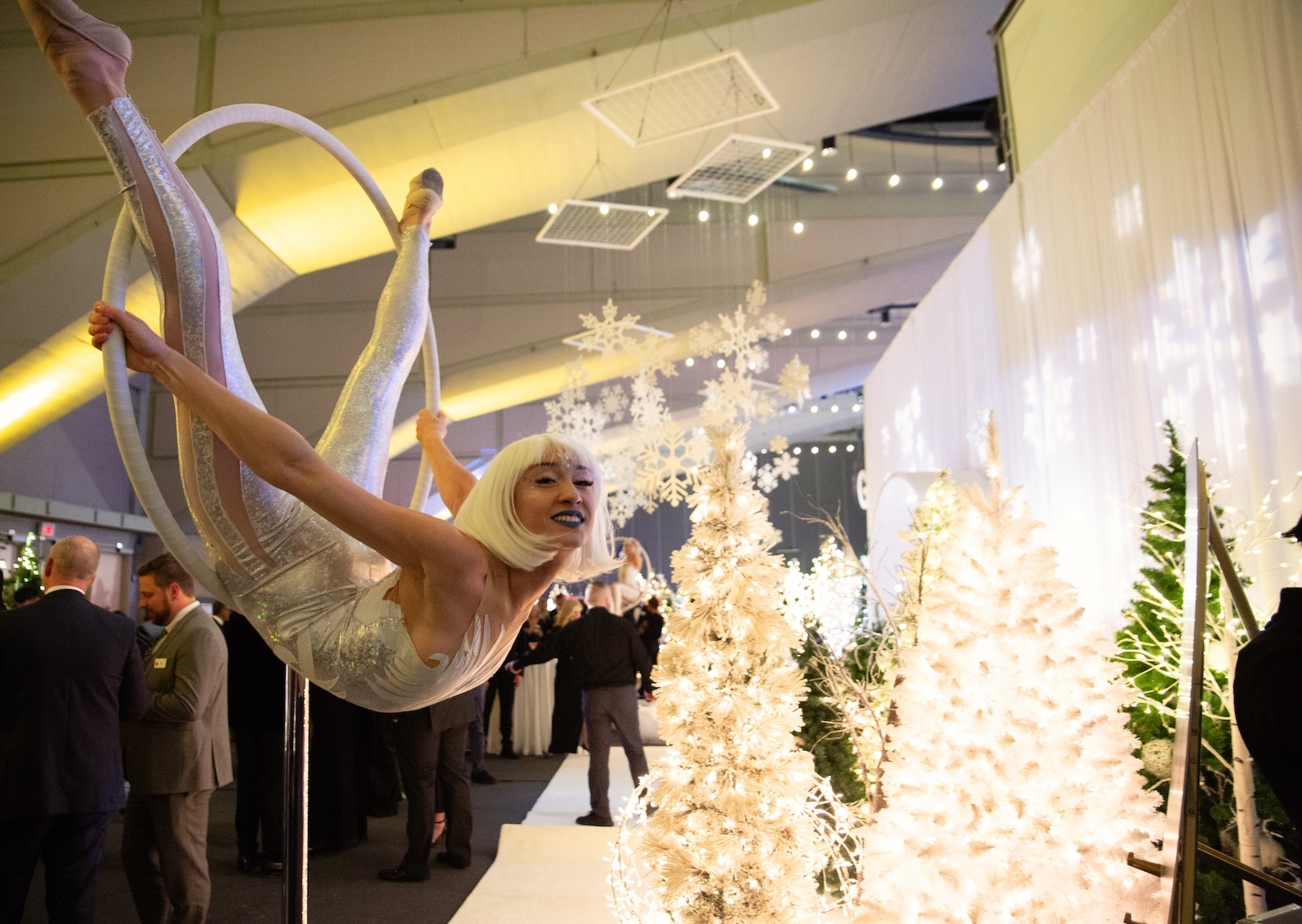Far before most people are thinking about Christmas, the volunteers of the University Hospital Foundation’s Festival of Trees are knee deep in decorations. In the spring, volunteers gather in a south-side Edmonton warehouse where they devote hundreds of hours to decorating wreaths and trees.
“It’s like Santa’s workshop,” says Jodi Abbott, president and CEO of the University Hospital Foundation. “Over the years, the festival just grew and grew, and it is very much tied to volunteerism because all the trees, the wreaths, anything we display that’s on sale, are created by volunteers.”
One tree can take a full day to complete before it’s wrapped and taken down to the Edmonton Convention Centre, where it will be set up along with many others in a beautiful display.
While hundreds are involved in the process, about 40 core volunteers help plan the various events under the Festival of Trees banner. Forty years ago, the festival started with just 15 trees set up in the University of Alberta Hospital lobby, and now, the University Hospital Foundation — an organization that raises funds for the University of Alberta Hospital’s patient care, research and innovation — hosts year-round events with the money going towards anything from infrastructure projects to health-care research.
Festival in the Garden is the first event; it’s an open picnic held in the summer for about 300 people and entertainment. Then, on Nov. 28, there is the Gala and auction at the Edmonton Conference Centre. It’s a black-tie, classy evening event where close to 1,000 people can bid, through a live and silent auction, on all the trees and wreaths. On Nov. 29, the newest event (it was born about four years ago), the Silver Bells Soirée, is a dress up cocktail party with a live band. And Santa’s Breakfast is a family affair on Dec. 1, when all the decorations remain set up, and families can enjoy a breakfast and visit with Santa.
This year, the Gala will focus on Alzheimer’s disease research with the tagline “Making Alzheimer’s a memory.” Funds raised will go towards high priority needs that come up in research or clinical care, including the research of Jack Jhamadas, who has created an early stage drug that reverses memory loss in animal models.
